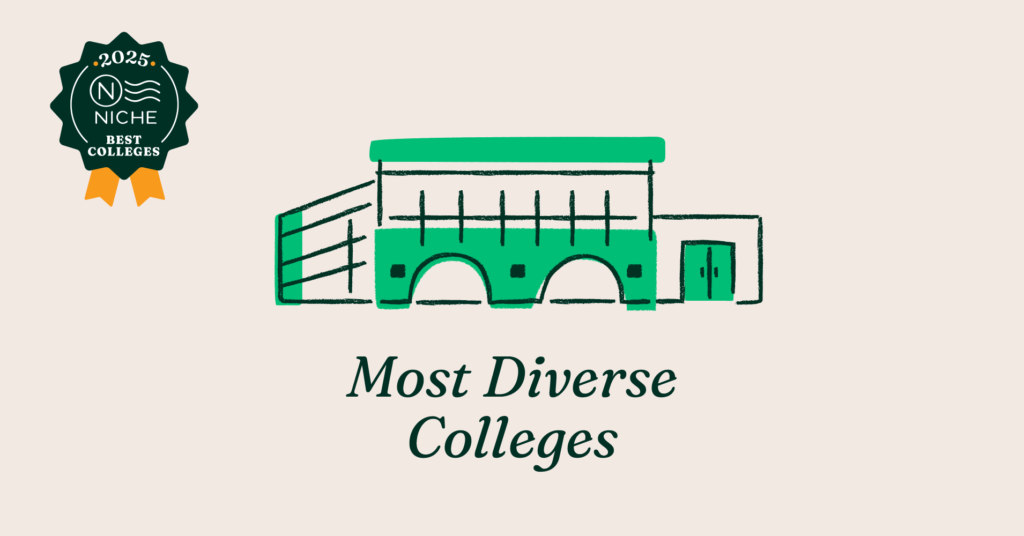In 2025, U.S. schools are stepping up to create inclusive environments where every student feels valued, respected, and empowered. Diversity programs are at the heart of this transformation, breaking down barriers and fostering equity across K-12 and higher education. These initiatives are not just about meeting quotas—they’re about building communities that celebrate differences, promote understanding, and prepare students for a global world. From innovative curriculum changes to specialized support for underrepresented groups, here’s a look at the best diversity programs reshaping U.S. schools this year.

Why Diversity Programs Matter in Schools
Diversity in education goes beyond race and ethnicity. It includes neurodiversity, socioeconomic backgrounds, gender identities, and cultural perspectives. Research shows that diverse classrooms improve academic outcomes, enhance critical thinking, and prepare students for collaborative workplaces. A 2024 survey by BestColleges found that 62% of students believe racial and ethnic diversity improves their social experience, while 59% say it enhances the learning environment. Schools with strong diversity programs create spaces where students feel safe to express themselves and learn from others who are different from them.
However, challenges remain. Some schools face pushback due to political debates around diversity, equity, and inclusion (DEI) initiatives. Despite this, many institutions are doubling down on programs that promote inclusivity, proving that diversity is not just a buzzword—it’s a necessity for the future.
Top Diversity Programs Making Waves in 2025
1. Neurodiversity Support at Landmark College
Landmark College in Putney, Vermont, is a pioneer in supporting neurodivergent students, including those with autism, ADHD, and dyslexia. In 2025, its programs are setting a standard for inclusivity. The college offers tailored academic support, flexible learning paths, and social activities to ensure neurodivergent students thrive. Its associate and bachelor’s degree programs are designed with individualized coaching, helping students build confidence and skills.
What makes Landmark stand out is its focus on strengths. For example, many neurodivergent students excel in creative problem-solving, and the college integrates this into its curriculum. By celebrating neurodiversity as a valuable part of the human experience, Landmark is transforming how schools approach learning differences.

2. Beacon College’s Inclusive Model
Beacon College in Leesburg, Florida, is another leader in neurodiversity. As the first accredited U.S. college focused on students with learning differences, Beacon offers a supportive environment for earning associate and bachelor’s degrees. In 2025, its programs emphasize academic accommodations, social integration, and career preparation.
Students at Beacon benefit from small class sizes and personalized mentoring. The college also provides life skills training, helping students transition to independent living. By prioritizing inclusivity, Beacon shows that every student deserves an education that fits their unique needs.
3. Eastern Michigan University’s College Supports Program
Eastern Michigan University in Ypsilanti is making strides with its College Supports Program (CSP) for students on the autism spectrum. In 2025, CSP offers academic coaching, social-emotional support, and life skills training. The program also involves families, recognizing their role in student success.
CSP’s holistic approach includes residential support and career planning, ensuring students are prepared for life after college. By addressing both academic and personal growth, Eastern is creating a model for other universities to follow.
4. Defiance College’s ASD Affinity Program
Defiance College in Ohio is transforming education for students with autism through its ASD Affinity Program. This initiative provides customized academic, social, and residential support to help students succeed. In 2025, the program focuses on fostering independence, with mentors guiding students toward career goals.
The program’s strength lies in its flexibility. Students receive the level of support they need, whether it’s help with time management or navigating social settings. Defiance’s commitment to individualized care is inspiring other schools to adopt similar approaches.

5. K-12 Initiatives: Black Student Unions in California
In California’s K-12 schools, Black Student Unions (BSUs) are empowering students to celebrate their identities and advocate for change. These clubs, which began in the 1960s, are thriving in 2025, with over 3,000 high school students participating statewide. BSUs offer a space for socializing, discussing issues, and organizing events like college tours and youth summits.
Despite recent debates over DEI programs, California school leaders are standing firm. Angie Barfield, executive director of Black Students of California United, emphasizes that BSUs are about community, not division. These programs show how K-12 schools can nurture diversity while fostering a sense of belonging.
6. Adelphi University’s Bridges to Adelphi Program
Adelphi University in Garden City, New York, is making a difference with its Bridges to Adelphi program. This initiative supports neurodivergent students with academic, social, and vocational guidance. In 2025, the program pairs students with mentors who help them navigate college life and prepare for the workforce.
Bridges to Adelphi stands out for its comprehensive approach. Students work on everything from time management to job interview skills, ensuring they’re ready for life after graduation. The program’s success highlights the importance of tailored support for neurodivergent learners.
Challenges and the Road Ahead
While these programs are transformative, they face hurdles. Recent political shifts have led to scrutiny of DEI initiatives, with some schools facing pressure to scale back diversity efforts. For example, a 2025 directive from the U.S. Department of Education urged schools to end race-conscious programs, sparking debates about federal funding. However, many educators argue that diversity programs are legal and essential for equitable education.
California’s response is a case study in resilience. Attorney General Rob Bonta has defended DEI programs, encouraging schools to maintain clubs and celebrations that honor cultural diversity. This pushback shows that schools are committed to inclusivity, even in the face of challenges.
Another challenge is ensuring access. While colleges like Landmark and Beacon are leaders, their specialized programs can be costly. Expanding similar initiatives to public institutions and K-12 schools is crucial for broader impact. Partnerships with nonprofits and government agencies could help scale these efforts.
The Impact of Diversity Programs
The benefits of these programs are clear. Students in diverse environments develop stronger social skills, greater empathy, and better problem-solving abilities. For underrepresented groups, these initiatives provide a sense of belonging that boosts academic performance and mental health. A 2023 Lumina-Gallup study found that Black students in diverse programs felt safer and less discriminated against, especially when supported by mentors.
For society, diverse schools create graduates who are ready to lead in a multicultural world. Employers value workers who can collaborate across differences, making these programs a win for both students and the workforce.
Looking Forward
As we move through 2025, U.S. schools are proving that diversity is a strength. From neurodiversity programs at Landmark and Beacon to Black Student Unions in California, these initiatives are building inclusive communities that uplift every student. While challenges persist, the commitment to equity and inclusion remains strong.
Educators, students, and families are at the forefront of this change, showing that diversity isn’t just a goal—it’s a way of life. By investing in these programs, schools are shaping a brighter, more inclusive future for all.
Must Read :- Top 10 Best U.S. Colleges Changing Education in 2025






